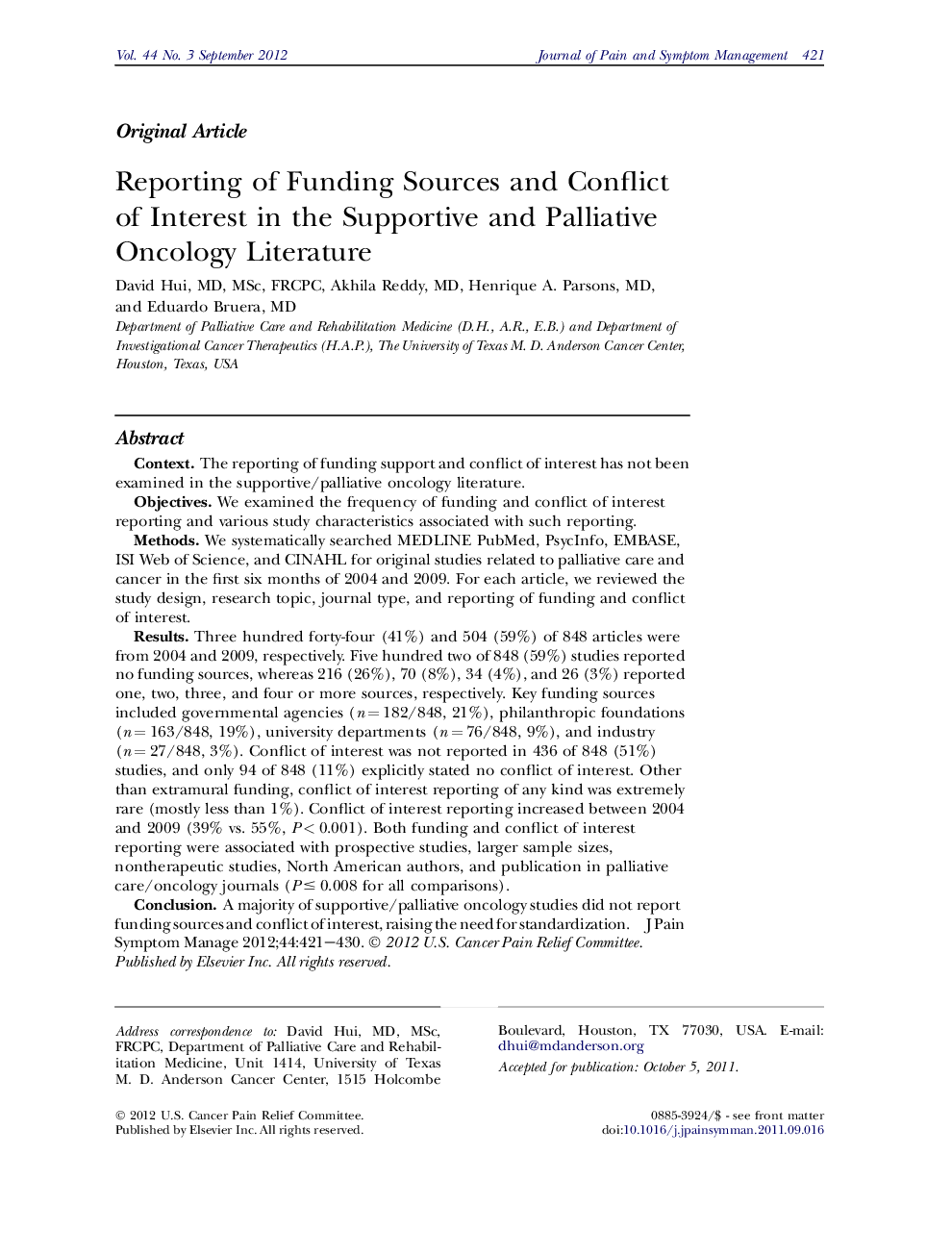| Article ID | Journal | Published Year | Pages | File Type |
|---|---|---|---|---|
| 5879775 | Journal of Pain and Symptom Management | 2012 | 10 Pages |
ContextThe reporting of funding support and conflict of interest has not been examined in the supportive/palliative oncology literature.ObjectivesWe examined the frequency of funding and conflict of interest reporting and various study characteristics associated with such reporting.MethodsWe systematically searched MEDLINE PubMed, PsycInfo, EMBASE, ISI Web of Science, and CINAHL for original studies related to palliative care and cancer in the first six months of 2004 and 2009. For each article, we reviewed the study design, research topic, journal type, and reporting of funding and conflict of interest.ResultsThree hundred forty-four (41%) and 504 (59%) of 848 articles were from 2004 and 2009, respectively. Five hundred two of 848 (59%) studies reported no funding sources, whereas 216 (26%), 70 (8%), 34 (4%), and 26 (3%) reported one, two, three, and four or more sources, respectively. Key funding sources included governmental agencies (n = 182/848, 21%), philanthropic foundations (n = 163/848, 19%), university departments (n = 76/848, 9%), and industry (n = 27/848, 3%). Conflict of interest was not reported in 436 of 848 (51%) studies, and only 94 of 848 (11%) explicitly stated no conflict of interest. Other than extramural funding, conflict of interest reporting of any kind was extremely rare (mostly less than 1%). Conflict of interest reporting increased between 2004 and 2009 (39% vs. 55%, P < 0.001). Both funding and conflict of interest reporting were associated with prospective studies, larger sample sizes, nontherapeutic studies, North American authors, and publication in palliative care/oncology journals (P â¤Â 0.008 for all comparisons).ConclusionA majority of supportive/palliative oncology studies did not report funding sources and conflict of interest, raising the need for standardization.
